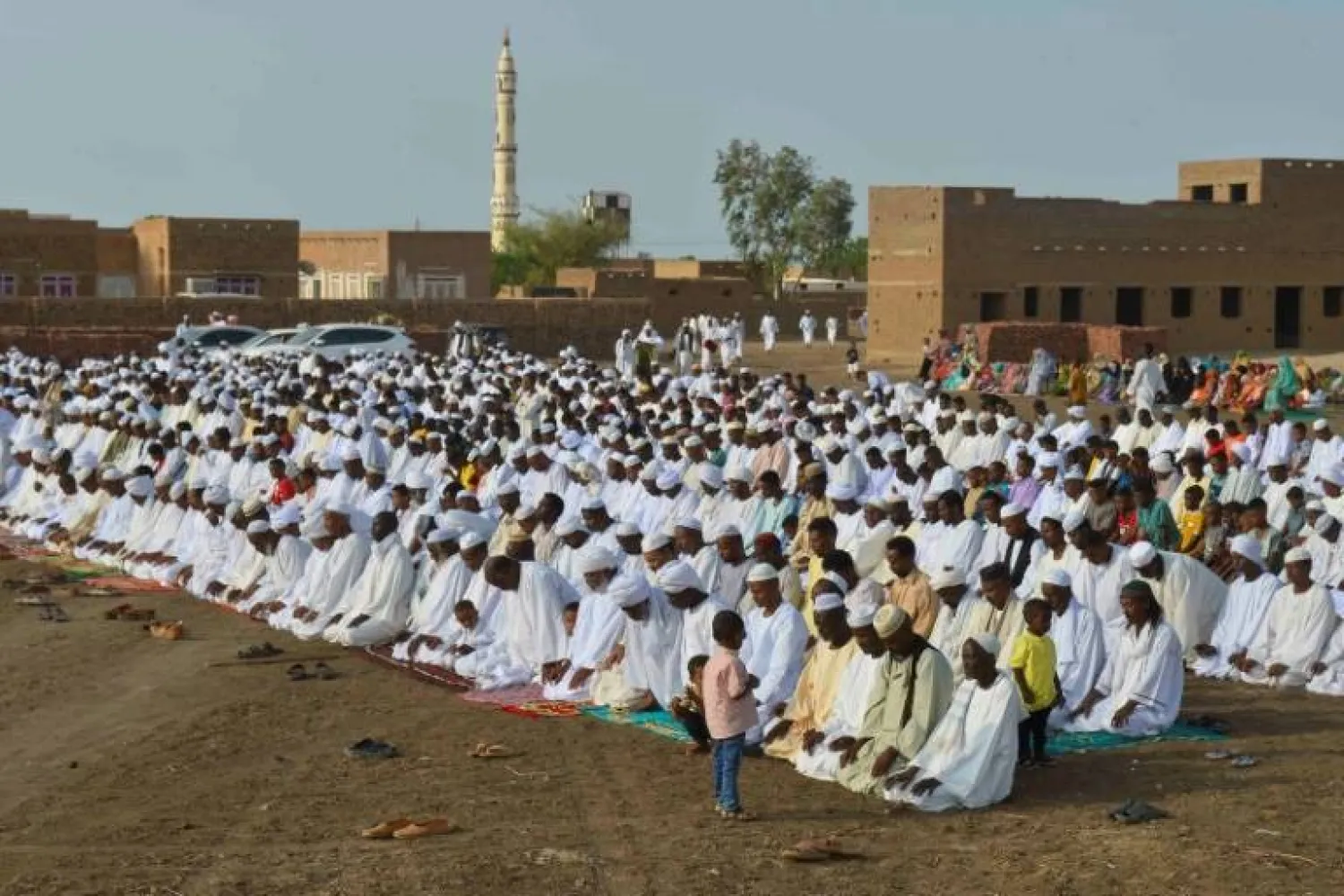Hundreds gathered in the Sudanese capital Khartoum Wednesday to pray for peace on the first day of the Eid al-Adha Muslim holiday, but gunfire shattered the brief respite, residents said.
Witnesses in the capital's twin city of Omdurman late Wednesday reported air strikes and anti-aircraft fire, despite separate unilateral truces announced by the warring generals for the holiday.
"The country can't take any more of this," Khartoum resident Kazem Abdel Baqi told AFP earlier in the day.
Nearly 2,800 people have been killed and more than 2.8 million displaced in the war between army chief Abdel Fattah al-Burhan and his deputy-turned rival Mohamed Hamdan Daglo, who commands the paramilitary Rapid Support Forces (RSF).
Burhan on Tuesday called for Sudanese "youth and all those able to defend" to take up arms with the military. His appeal echoed one from the defense ministry last month, and has been widely rejected by civilians.
"We pray to God to make our country safe and secure," Baqi said, rejecting Burhan's call to arms, after the early morning prayer that rang in the three-day festival, normally a highlight of the year for Sudanese.
In neat rows in an empty courtyard, men in white and women in brightly colored outfits gathered to pray, embracing and wishing each other well in a rare moment of respite from more than 10 weeks of relentless gunshots, air strikes and artillery fire that have reduced civilians' homes to rubble.
In both Khartoum and the western region of Darfur, where most of the violence has occurred, bodies have been left to rot in the streets.
Similar prayer gatherings took place outside Khartoum, including in Jazira region where many have fled from the capital.
With millions trapped in the embattled capital still rationing electricity and water in the oppressive heat, families struggled to conjure up holiday cheer.
Omar Ibrahim, who lives with his three children in Khartoum's Shambat district, said the rituals of Eid have become an "unattainable dream".
"Will the guns be silent for Eid?" asked Ibrahim.
Multiple ceasefires announced by both sides have been systematically violated, as well as others mediated by the United States and Saudi Arabia.
The United Nations mission in Sudan (UNITAMS) welcomed the latest unilateral truce announcements.
"May Eid al-Adha be a reminder that the violence must stop," it said in a statement, reminding warring parties that "accountability for crimes committed during wartime will be pursued."
In past years, those Sudanese Muslims who could afford it would slaughter an animal for Eid, but now a record 25 million people in Sudan need humanitarian aid, the UN says.
The RSF and the army battled for control of Khartoum on multiple fronts this week, with paramilitaries seizing the capital's main police base and attacking military bases across the city.
In his Eid address urging the youth to defend Sudan, Burhan called the RSF "an existential threat" to the state.
Khartoum resident Ahmed al-Fateh said he was "against Burhan's call to tell the youth to take up arms and fight with the army."
"The youth have never fought before, and could do more harm than good," he told AFP.
More than a month ago the defense ministry had called on army reservists and military pensioners to report to military bases, before the governor of Darfur urged civilians to take up arms to defend themselves.
On Twitter, researcher Hamid Khalafallah called Burhan's address "very irresponsible", given fears that what began as a power struggle between generals is spiralling into civil conflict.
In the western region of Darfur the situation continues to worsen.
Entire cities are under siege, the UN says, and neighbourhoods burned to the ground.
Residents, as well as the UN, United States and others, say civilians have been targeted and killed for their ethnicity by the RSF and allied Arab militias -- in a bleak reminder of Darfur's bloody history.
In 2003, former strongman Omar al-Bashir armed and unleashed the RSF's predecessor, the Janjaweed militia, against Darfur's non-Arab ethnic minorities in a war that killed more than 300,000 and displaced 2.5 million.
Since April, more than 170,000 people have fled Darfur into neighbouring Chad, according to the UN refugee agency.
A total of almost 645,000 people have sought refuge outside Sudan, according to the latest International Organization for Migration data, with around 2.2 million more displaced within the country.
According to Laura Lo Castro, UNHCR's representative in Chad, "every 30 seconds, five (Sudanese) families cross the border into Chad through Adre town."














